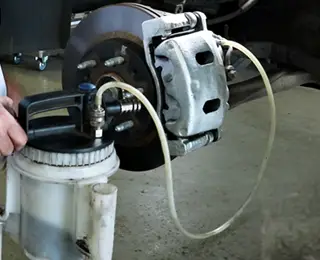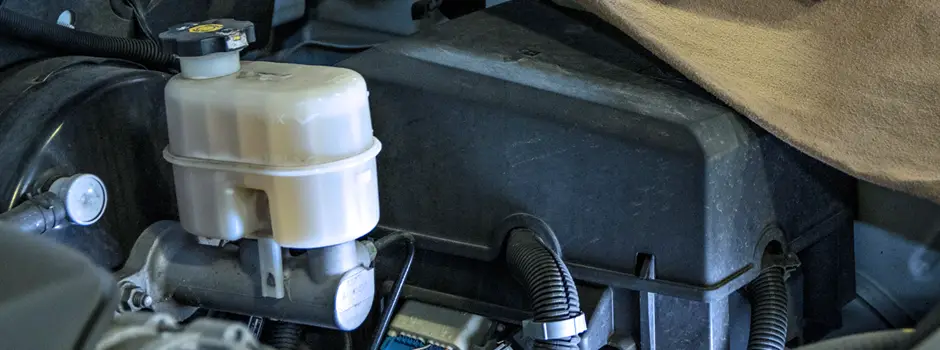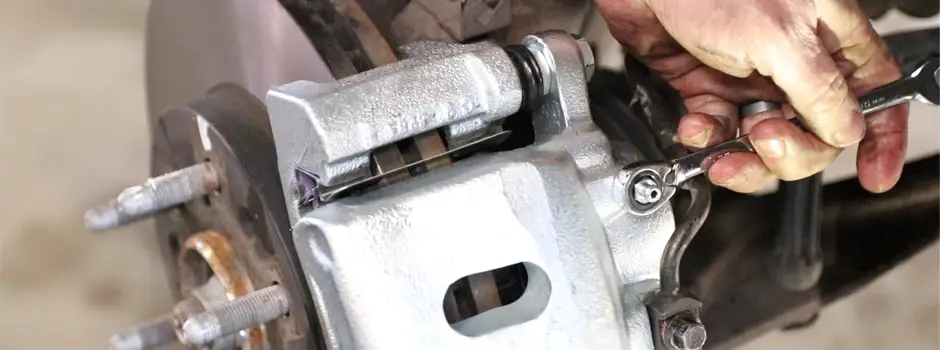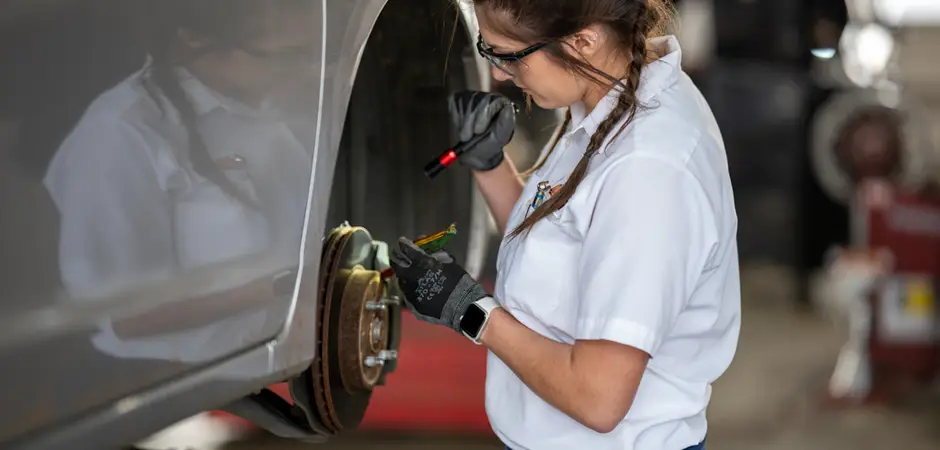You have already added that item to your appointment.

You have already added that item to your appointment.
When the brakes on your car or truck are working as expected, coming to a safe stop is effortless. However, when your brake fluid develops air bubbles or is contaminated by dirt or other debris, your brakes can lose stopping power. Brake bleeding, which involves manually pumping the air out of all four of your brake lines, can help improve braking for a time. Additionally, a full brake fluid flush or an exchange of all the brake fluid can help improve braking performance in the long term. Let’s take a look at the differences between brake bleeding and fluid exchanging and which option is the right choice to optimize your brakes.
The professionals at Les Schwab are specially trained to care for your brakes, including brake bleeding and fluid exchanging as needed. Schedule an appointment today.
So, what is brake fluid, and what does it do? First, brake fluid is a non-compressible, high-heat-resistant hydraulic fluid. When you press the brake pedal, pressure is added to the master cylinder. That pressure then pushes the brake fluid through special brake lines to the calipers, which in turn force the brake pads (disc brakes) or shoes (drum brakes) onto the rotor or drum. This slows your car or truck. While that’s a big part of the brake fluid’s job, it’s also a lubricant for your brake system as well as a fluid that protects against corrosion.
Over time, your vehicle’s brake fluid can get contaminated by dirt and moisture. That water can then turn into air bubbles under high heat, causing braking issues.

Les Schwab Tip: Be sure to check your brake fluid with every oil change. You’ll find the fluid reservoir in your engine compartment. If it’s low, it’s okay to add fluid. Just be sure it matches what is recommended by the manufacturer.
Both brake bleeding and brake fluid exchange are used to improve braking performance.
Brake bleeding is often done when:
Brake fluid exchange should be done when:
Brake fluid exchanging or brake flushing does a lot more for your brakes than simply bleeding them. When your brake fluid is fully flushed or exchanged, the old fluid is pushed out and replaced by new fluid. In the end, flushing removes dirt, air, water, and other contaminants. It also ensures proper fluid levels.
While there are some do-it-yourself kits out there, a professional fluid flush is recommended to avoid adding contaminants to your braking system. You could save a little money doing it yourself, but if things go wrong, it could cost you a lot more in damaged brake parts.
Brake bleeding is the process of removing air from your brake fluid. When done correctly, brake bleeding can extend the life of your brake fluid and improve braking performance.
If your brake pedal feels soft when you press on it, it could be time to bleed them. The two brake bleeding options include manual and pressure. The manual option requires two people. One person presses on the brakes while the other opens and closes each wheel’s bleeder valve. Pressure bleeding uses specialized tools that pressurize the brake fluid reservoir. That pressure forces fluid through the lines to remove air.
While it is possible to do it on your own, professional brake bleeding and fluid flushing at Les Schwab can help ensure your brakes work when you need them.

The brake fluid in your vehicle will eventually go bad. When it does, it can decrease your stopping power, putting you and those around you at risk. With an annual brake check (or when recommended by the manufacturer) and a brake fluid replacement every two to three years, you can get problems fixed before they become an issue. Plus, preemptive brake maintenance can save you money by protecting the other parts of your braking system.
Some signs your brakes could be going bad include:
We have some tips to help you decide if you really need brake servicing. If you’re still not sure, stop by Les Schwab for a free visual inspection.

Your brakes have a lot of moving parts and specialized fluids. The professionals at Les Schwab understand and can thoroughly inspect, diagnose, and make recommendations. We’ll tell you if the sounds, smells, or spongy brake pedal are something simple like a rock in the caliper or more serious, such as a warped rotor or contaminated brake fluid. Check out these possible brake issues and then schedule an appointment at your local Les Schwab.
The brakes on your car or truck keep you and your family safe. Keep those brakes in good working order, including brake bleeding and fluid flushing, with a quick trip to Les Schwab. Book a free pre-trip safety check today or stop by any location.